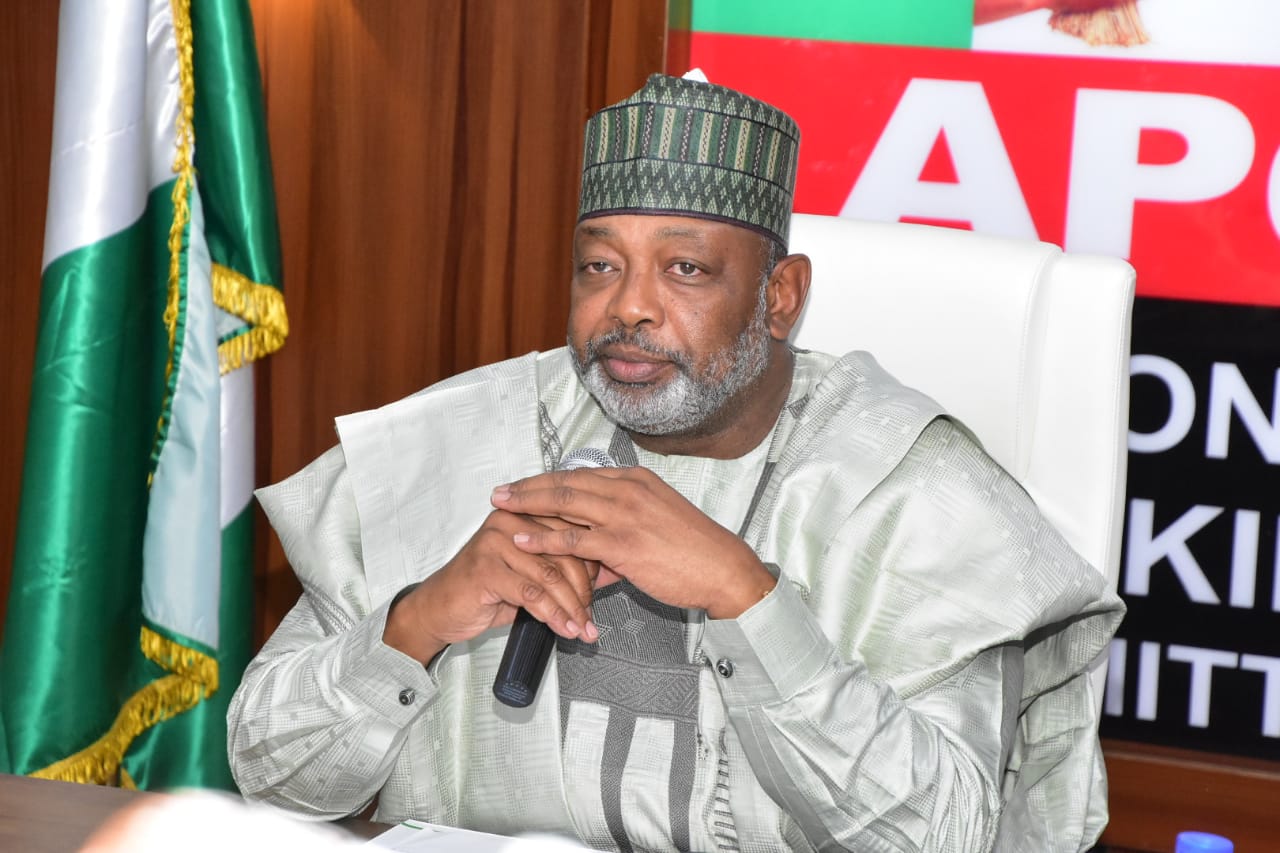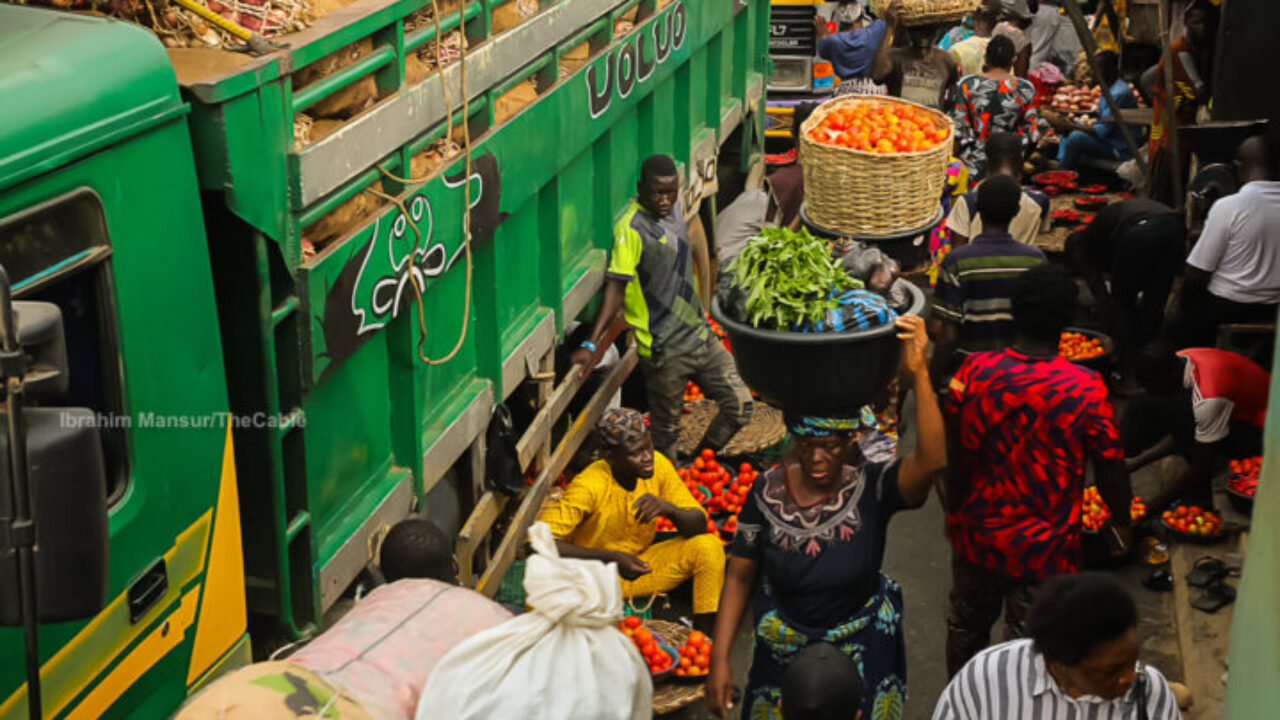In a recent development, President Bola Tinubu has been encouraged to disregard the criticisms surrounding the suspension of tariffs, duties, and taxes on the importation of food grains and other essential products into Nigeria. Olatunbosun Oyintiloye, a prominent chieftain of the All Progressives Congress (APC) in Osun State, made this appeal during a press interaction with journalists in Osogbo on Sunday. This plea comes in the wake of a decision by the Federal Government to provide relief from high food prices through a 180-day Duty-Free Import Window for essential food items.
On July 8, 2024, the Federal Government announced a significant policy shift by suspending duties, tariffs, and taxes on certain essential food items imported via land and sea borders. This decision, aimed at alleviating the ongoing food crisis, was articulated by the Minister of Agriculture and Food Security, Abubakar Kyari, during a press briefing in Abuja. According to Kyari, essential food items such as maize, wheat, husked brown rice, and cowpeas would be allowed into the country without the usual import taxes for a period of 180 days.
The policy has sparked a wave of criticism from various stakeholders who argue that it could undermine local farmers and negatively impact the domestic agricultural sector. However, Oyintiloye defended the suspension, suggesting that those opposing the policy might be benefiting from the economic hardships faced by the Nigerian masses or could be attempting to incite unrest against President Tinubu. He stressed that the global economic crisis, coupled with unavoidable policy measures implemented by the current administration, had created a challenging environment for the President’s Renewed Hope Agenda. Despite these challenges, Oyintiloye emphasized that recent efforts to revamp the economy were beginning to yield positive results.
"Although the tariff suspension might not be the lasting solution to the food crisis in the country, it will cushion the effects of the food crisis ravaging the country in the short term. The president should be commended for taking this bold step," Oyintiloye stated.
Oyintiloye cited data from the National Bureau of Statistics (NBS) which indicated that food inflation in Nigeria rose to 40.66% in May from 40.53% in April. This, he argued, highlighted the urgent need for government intervention to mitigate the impact of rising food prices on the population. He contended that the tariff suspension was a responsible and responsive measure to the public’s outcry over high food prices.
"The president should ignore the criticism by those who see nothing good in the decision," Oyintiloye said. "Nigeria voted for good governance, high standard of living, and to achieve this and many others, the president should be focused on how to improve the economy and lift the country out of the inherited economic quagmire and ignore the critics."
Oyintiloye underscored the importance of agriculture as a cornerstone of Nigerian life and urged the government to continue its aggressive efforts to make food available in abundance. He called for a shift from subsistence farming to mechanized systems of farming, emphasizing the need for modern agricultural practices to enhance productivity and food security.
"I urge the government at all levels to discard the old subsistence system of farming, storing, and processing, and embrace mechanized systems of farming. The government should empower and encourage farmers with soft loans and subsidize farming implements for genuine farmers, provide adequate security, and integrate the youth into agricultural systems," Oyintiloye emphasized.
The final order issued by the FCCPC mandates several corrective actions for Meta to comply with Nigerian laws. These include ensuring Nigerian users’ right to data self-determination, ceasing unauthorized data transfers, and eliminating discriminatory practices. The order also imposes a $220 million penalty on Meta, emphasizing the gravity of the violations.
"I strongly believe that with all the interventions the government has put in place to tackle the food crisis in the country, the projection of the Minister of Agriculture and Food Security, Abubakar Kyari, that the government will crash food prices in the next 180 days is achievable," he said.
Oyintiloye highlighted the need for a holistic approach to agricultural reforms, calling on the government to empower farmers through soft loans, subsidized farming implements, and adequate security. He also emphasized the importance of integrating youth into modern agricultural practices to ensure a sustainable and productive agricultural sector.
"The government should empower and encourage farmers with soft loans and subsidize farming implements for genuine farmers, provide adequate security, and integrate the youth into agricultural systems," Oyintiloye reiterated.
In conclusion, Oyintiloye urged President Tinubu to stay focused on improving the economy and lifting Nigeria out of its economic challenges. He emphasized that the government’s commitment to addressing food inflation and protecting consumer rights was evident in the recent policy measures and regulatory actions. Oyintiloye called on the government to continue its efforts to ensure food security and economic stability, urging the President to ignore critics and stay the course for the benefit of all Nigerians.

.jpeg)





.jpg)




0 Comments
Post your comment here